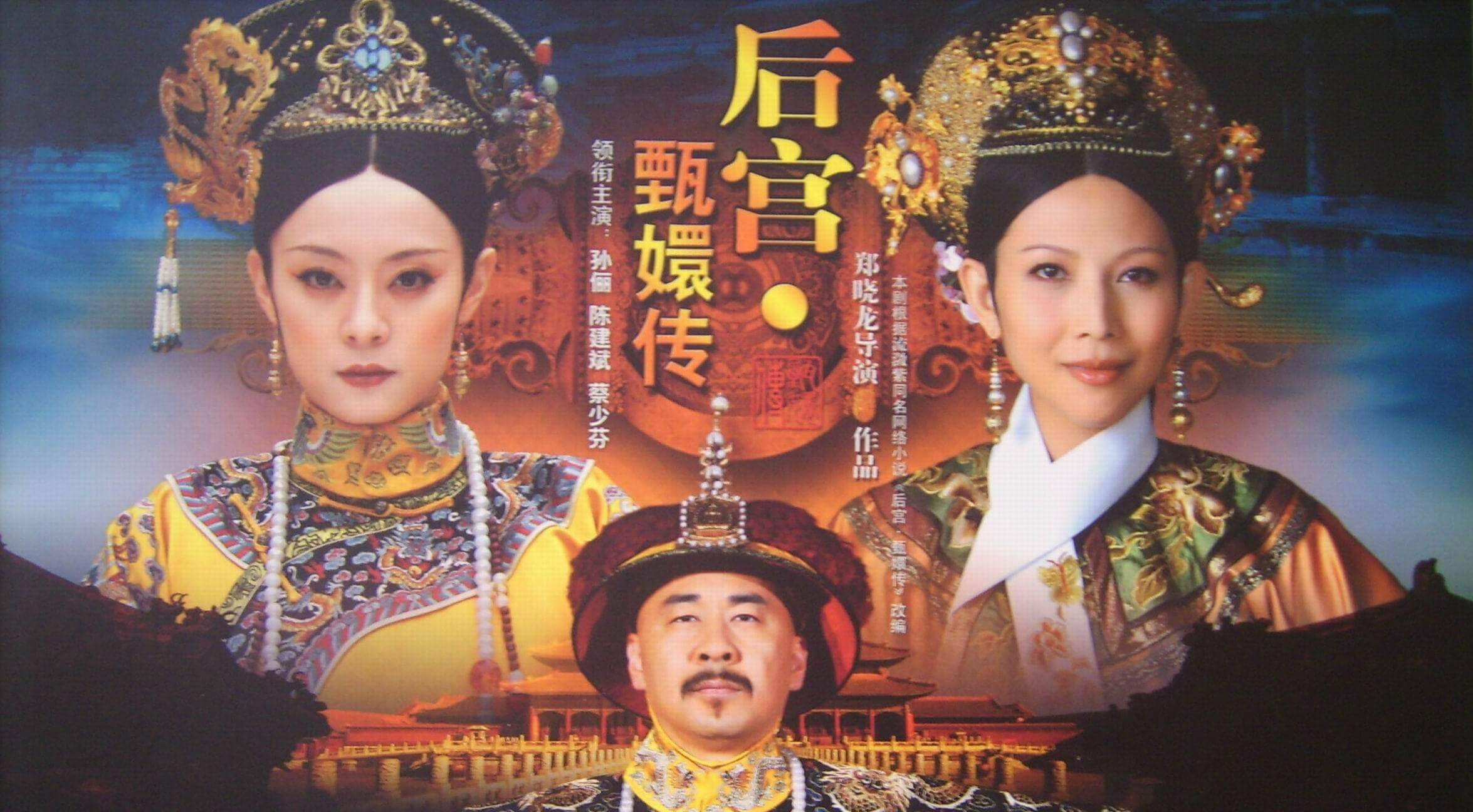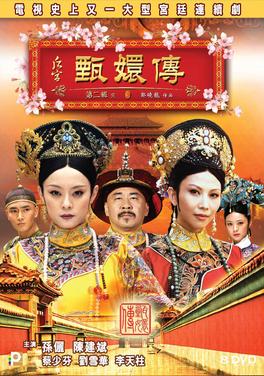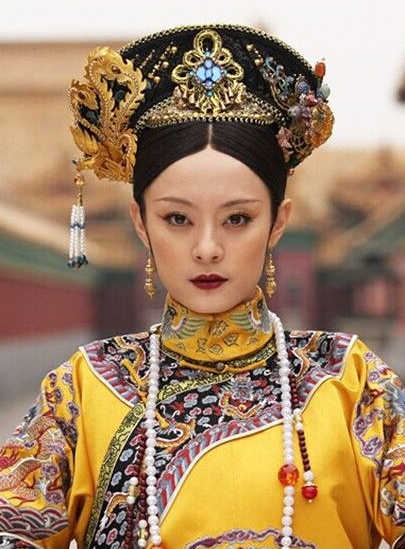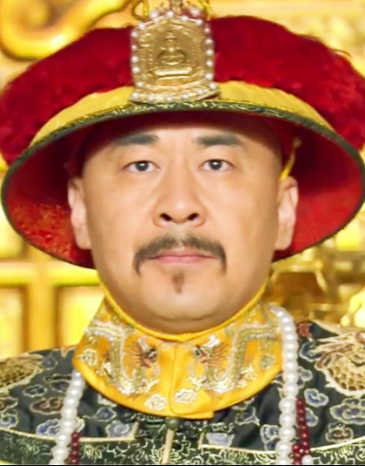

I have only watched the TV series, not read the original book, so my analysis is based on the TV series.
Many people marvel at how these women in "The Legend of Zhen Huan" have luxurious lives but still choose to fight each other instead of enjoying life. Some joke that their lack of entertainment leads to these deadly battles. If they had something like Mahjong, they might not have had the time or energy for such conflicts.
Of course, that's just a joke. Even if they had Mahjong, they would still find time to engage in power struggles. For them, these fights are as essential as eating—basic survival. Fighting means they might die; not fighting means they will definitely die.
Why? Because these women live in a world governed by the law of the jungle, where the strong have immense control over the weak. Though they are at the top of the social pyramid, their sense of security is likely much less than that of ordinary working people.
Throughout the series, you repeatedly see those in power exercising control over those below them.
Princess Chao Gui is arranged to marry the 60-year-old Khan of Dzungar because her mother is only a low-ranking concubine. This leads Noble Consort Cao to worry about her daughter, Princess Wen Yi's future.
In fact, Consort Cao's daughter doesn't seem to belong to her. Noble Consort Hua can take her away or feed her cassava flour as she pleases, simply because Cao Qinmo is just a minor concubine.

Everyone knows the cassava flour incident was a plot by Noble Consort Hua to frame Zhen Huan, but the Empress Dowager brushes it off with a simple question: "So what?" In the end, the Empress assigns the blame to a lowly kitchen maid, Xiao Tang.
It's not just lowly servants who can be sacrificed. Even noble concubines can be used similarly. In the incident involving the Third Prince and Consort Ying, it was clear that the Third Prince harassed Consort Ying, but Emperor Yongzheng didn't hesitate to sentence Consort Ying to death with a white silk scarf.
Obviously, the Emperor wouldn't let a concubine's issue affect a prince's future. So, he reversed the situation, making the concubine's innocence appear as if she had committed adultery.

Is there any law in this world? Of course not. This is a society ruled by people, not by law.
Such incidents abound, revealing the brutal reality of a world governed by the law of the jungle, where the basic rights of the weak are not guaranteed because the society doesn't operate based on contracts.
In a contractual society, a general manager can ask you to work overtime, but they can't whimsically take your child to play, or seize your son because of a mistake you made at work, or force your daughter to marry an old partner, or kill a janitor to cover up a mistake.
Thus, as long as you have sufficient security, you can enjoy leisure activities like playing Mahjong or video games, without having to fight for survival with your superiors or colleagues.
In contrast, even after Zhen Huan left the palace to become a nun at Ganlu Temple, she couldn't escape humiliation. She didn't even have the right to live as an ordinary person until Shen Meizhuang begged the Empress Dowager for protection, granting her rare peace.
This humiliating experience made Zhen Huan realize that to survive and for her family to survive, she had to return to the palace and regain the Emperor's favor.
Originally, she didn't desire much—just hoped for "a gentle treatment" in hard times. She even dared to give Yongzheng the cold shoulder due to unfair treatment.
But each turning point in Zhen Huan's life, from version 1.0 to 3.0, involved her bowing to Yongzheng for favor. This was the basic guarantee for survival. Shen Meizhuang took Zhen Huan to see Consort Li in the Cold Palace to show her that without favor, one doesn't even have the right to live as a normal person.
In such a world, no one can stay aloof. Shen Meizhuang, who upheld her dignity, still had to seek protection from the Empress Dowager after falling out of favor. Xin Changzai, who never took sides and tried to stay out of trouble, finally realized she had to become a principal consort after being humiliated by Gua Er Jia Shi.
She likely didn't take sides earlier because she saw that siding with either Noble Consort Hua or the Empress would lead to a bad end—one would harm your child, the other would use you to scheme against favored concubines. When they fell, you would be buried with them.
It wasn't until Zhen Huan's triumphant return that Xin Changzai sensed an opportunity to finally align with the true power.
This is why Chinese people are so keen on fame and fortune—power not only protects but also determines life and death. With power, you reach the top of the food chain, becoming a feared beast in the jungle.
In classical novels, we see unconscious worship of power. Wu Song, a hero known for killing a tiger, proudly identifies himself as "Head Constable Wu Song" because his official title gives him more pride than his heroic deeds, even though it's a minor position.
Similarly, Lin Chong, while being exiled, still identifies as the "Drill Instructor of 800,000 Imperial Guards," not realizing he's now a prisoner.
In modern society, this fear is lessened, but there's still an inherent admiration for power, and people still seek positions within the system. Although power no longer allows the same abuses as in ancient times, it still holds significant benefits before a mature social contract system is in place.
But does sitting on the throne and reaching the top of the food chain guarantee safety?
No. As everyone fights for survival and power, the Emperor's throne is coveted by all. Since rights are protected by power, not contracts, the person at the top is also vulnerable.
In the first chapter of "Zizhi Tongjian," it states:
"Minister Guang said: I have heard that the Emperor's duty lies in ritual, the greatest of which is order, the greatest of which is name. What is ritual? It is order. What is order? It is the distinction between ruler and subject. What is name? It is the titles of Duke, Marquis, Minister, and Officer.
The vastness of the empire and the multitude of the people are ruled by one person. Though they possess extraordinary strength and intelligence, they all submit and serve because of ritual as the order. Therefore, the Emperor oversees the Three Dukes, who oversee the feudal lords, who control the Ministers and Officers, who govern the common people. The noble presides over the base, and the base serves the noble. The relationship between ruler and subject is like that between the heart and limbs or the root and branches. The mutual protection of ruler and subject ensures the stability of the state. Therefore, the Emperor's duty lies in ritual."
In summary, "I am the ritual, and ritual is law." You say there's no precedent for a deposed concubine returning to the palace? I'll bestow her with the surname Niohuru, turning her into Qianlong's nun praying for blessings. You say a 22-year-old can't be the mother of a 17-year-old Qianlong? I'll just add ten years to her age.
Thus, if I ever reach the top of the food chain, it's my word that counts. It's about who has the bigger fist, without needing any procedural justice. As early as the first centralized dynasty, Chen Sheng and Wu Guang already shouted, "Are the kings and nobles really of divine right?"
So, Zhen Huan could successively topple Noble Consort Hua and the Empress and eventually even kill the Emperor. Clearly, she achieved all this through underhanded schemes, not fair and transparent procedures.
In such a world, even those at the top of the pyramid have no sense of security. Yongzheng constantly worries about Nian Gengyao, Longkodo, and Prince Guo rebelling.
The Third Prince pleaded for his uncles, the Eighth and Fourteenth Princes, out of familial loyalty. Zhen Huan wanted to protect Prince Duan's children out of goodwill. But in Yongzheng's suspicious mind, they all aimed to usurp him.
His son, Qianlong, inherited this paranoia, probing Zhen Huan immediately after ascending the throne to see if she intended to support her son as Emperor.
After all, he had nearly been poisoned by a bowl of green bean soup.
What unsettles those in power, besides vertical threats, are horizontal alliances.
Brotherhood is a unique form of relationship in Chinese culture. In "Water Margin" and "Romance of the Three Kingdoms," men often become sworn brothers. Song Jiang is called brother everywhere he goes, and his brothers are more numerous than Luo Zhixiang's sexual partners. In "The Deer and the Cauldron," Wei Xiaobao has seven wives and nine sworn brothers.
Why were people so keen on forming sworn brotherhoods in ancient times, despite not needing family planning?
In a world governed by the law of the jungle, people lack a sense of security. Forming bonds similar to blood relations with non-relatives helps them mutually support each other, increasing their chances of survival.
Their quick mutual recognition is as fast as between a john and a streetwalker—seemingly out of mutual appreciation, but actually assessing each other's utility. Song Jiang gives silver to everyone he meets, and those indebted to him use their various skills for his benefit.
Thus, Shen Meizhuang, after losing favor, advises Zhen Huan to support An Lingrong. Consort Duan, who avoids Hua Fei's hostility by keeping a low profile, allies with Zhen Huan when they


